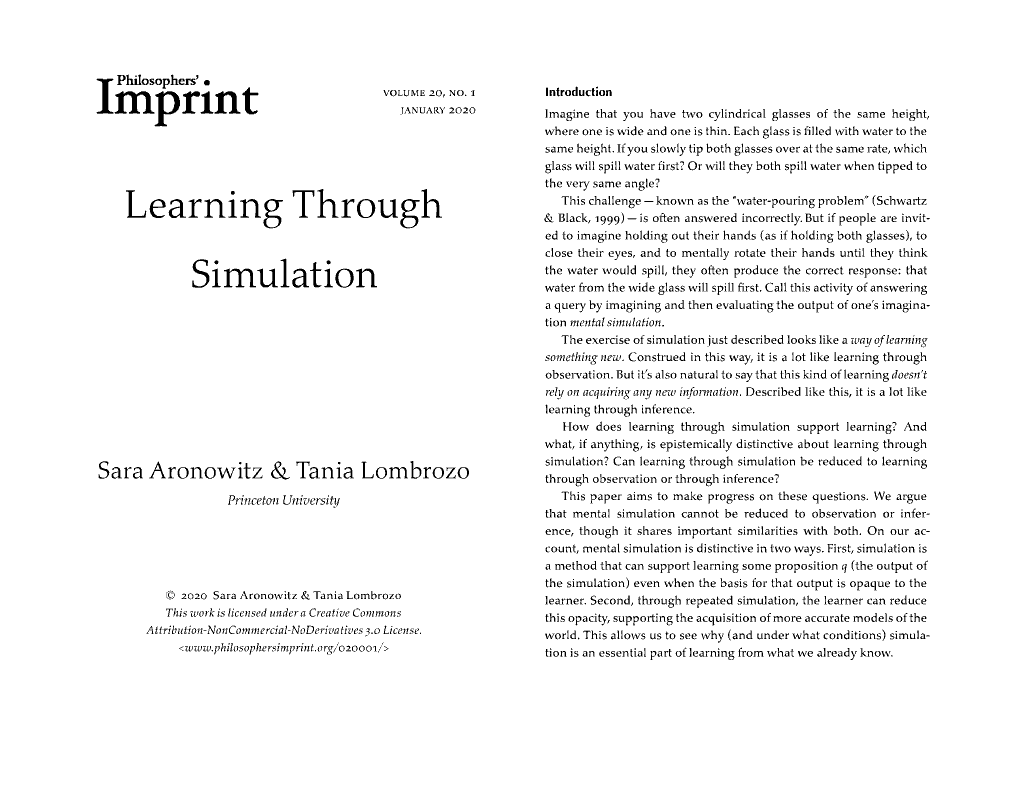Learning Through Simulation
Skip other details (including permanent urls, DOI, citation information): This work is licensed under a Creative Commons Attribution-NonCommercial-NoDerivatives 4.0 International License. Please contact [email protected] to use this work in a way not covered by the license.
For more information, read Michigan Publishing's access and usage policy.
Abstract
Mental simulation — such as imagining tilting a glass to figure out the angle at which water would spill — can be a way of coming to know the answer to an internally or externally posed query. Is this form of learning a species of inference or a form of observation? We argue that it is neither: learning through simulation is a genuinely distinct form of learning. On our account, simulation can provide knowledge of the answer to a query even when the basis for that answer is opaque to the learner. Moreover, through repeated simulation, the learner can reduce this opacity, supporting self-training and the acquisition of more accurate models of the world. Simulation is thus an essential part of the story of how creatures like us become effective learners and knowers.



